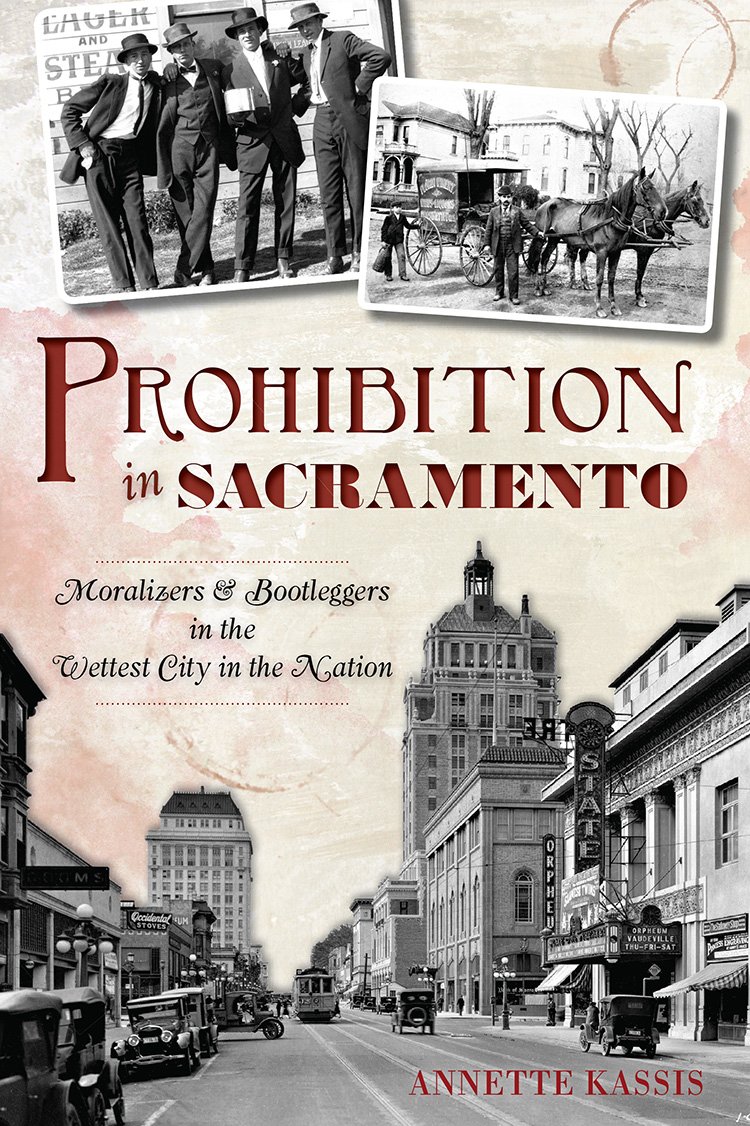
Sacramento’s open opposition to Prohibition and ties to rumrunning up and down the California coast caused some to label the capital the wettest city in the nation. The era from World War I until the repeal of the Eighteenth Amendment brought Sacramento storied institutions like Mather Field and delightful surprises like a thriving film industry, but it wasn’t all pretty. The Ku Klux Klan, ethnic immigrant hatred and open hostility toward Catholics and Jews were dark chapters in the Prohibition era as Sacramento began to shape its modern identity.
Region Your Book Covers: Northern California/Sacramento
What Inspired You to Write History Books?
I’ve always enjoyed history. When I earned my BA in journalism from Louisiana State University – Shreveport, my minor was in history. In a way, my career in advertising and public relations formed a sort of bridge to my historical work. When I started graduate school to work on my MA in history, I was also still working full-time at my advertising agency. I found that my historical interest extended to both business and cultural history, and I found it fascinating to examine how business, media and consumption–all areas that are part of my daily work–intersected with changes in our culture. My love of Sacramento led me to start closely examining how historical questions posed on a national scale look when brought down to a regional level. My Masters thesis was about how broadcast radio developed in the west–specifically in Sacramento. At that point I began to see just how many Sacramento stories there are to tell!
What Advice Would You Give Aspiring Writers?
This is hardly earth-shattering, but your reading is easily as important as your writing. Reading for pleasure and reading across a variety of genres make you a better writer. It’s no surprise that I read a lot of history, both because the work of other historians is important as secondary sources for my own research and just for the sheer enjoyment of it. But I also like to have a good novel going, especially when I’m in the midst of the research phase of my work. Getting immersed in a good story is a wonderful way to reset your thinking, especially if you’re grappling with a problem in your own work.
From a practical standpoint I offer this: do not wait for the perfect place or a perfect set of circumstances before you start writing. It would be nice to have a lovely, quiet study in which to work, but if you want to write, you can do it on a TV tray if you have to.
Writing About US History Must Be Difficult, How Do You Do Your Reseach?
It always starts with the question. Once I know what I’m asking, I begin by reading as much about the subject as possible. I read books and journal articles by other historians (secondary source research on the topic), making notes as I go. I also search out archival material (primary source research). For a Sacramento topic, my first resource is the Center for Sacramento History. Not only is it the official archive for the city and county, but it houses wonderful private collections as well. The Bancroft Library at the University of California – Berkeley is another archive I use a great deal. I also search the Online Archive of California and do other online searches to find places where collections that might be of interest are housed. When it comes to archival research, there is no substitute for the long hours and hard work of just digging through files and reading the material. Not everything is available online–you just have to go to the archive and dig. I also do a lot of searching through newspapers and periodicals, mostly on microfilm. One of the other sources I use early in the process is the Reader’s Guide to Periodical Literature. It’s a great resource for finding periodicals that published articles about a topic of interest during the period you’re writing about. For me, research is about constantly pulling on the loose thread. As I’m researching, I begin putting together an outline of the book. Not only does it help me keep my thoughts and the research material organized, but it also helps me see where the book is going.
Author Bio:
Annette Kassis is an independent historian in the Sacramento area and author of the recent History Press titles “Prohibition in Sacramento: Moralizers & Bootleggers in the Wettest City in the Nation,” and “Weinstock’s: Sacramento’s Finest Department Store.” Formerly co-owner of the Sacramento-based advertising agency K&H Marketing, LLC, Annette currently works as the manager of consumer communications for the California Beef Council and serves on the board of the Sacramento History Foundation. She holds a master’s degree in history from California State University-Sacramento.
Website(s)
Author Home Page Link
Link to Book for sale via History Press
Link To Buy Book On Amazon
Link to Book on Barnes and Noble
Link to Book for sale via other sites
Social Media:
https://twitter.com/AnnetteKassis
Have you read this book or another by this author? If you have, please scroll past the book sample and tell us about it in the comments!
Book Sample:
